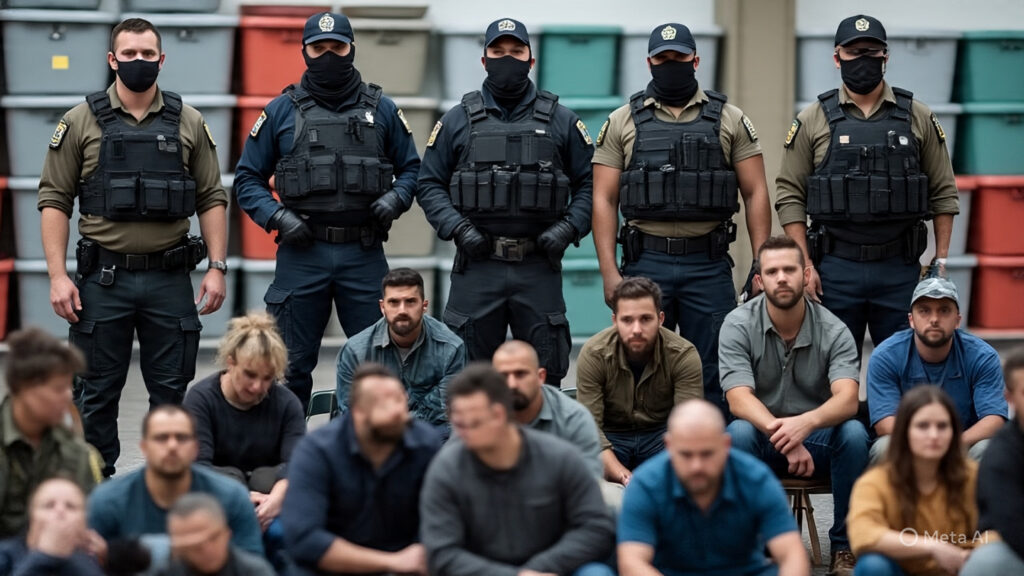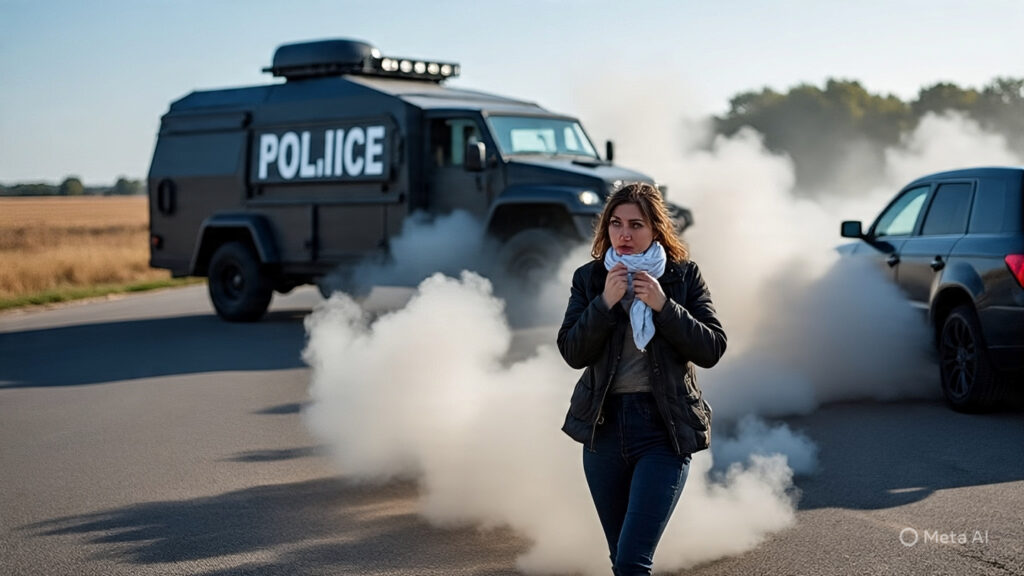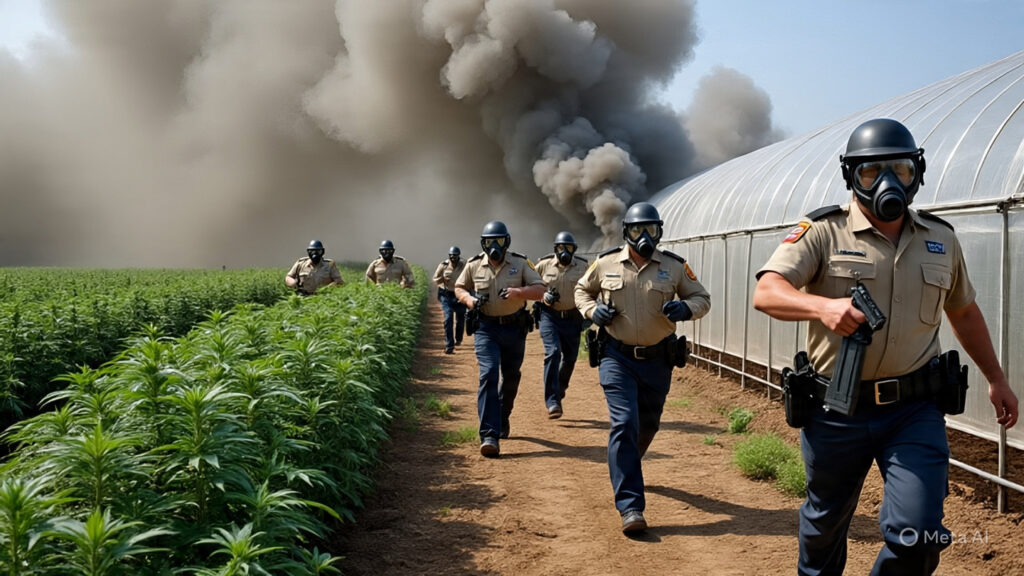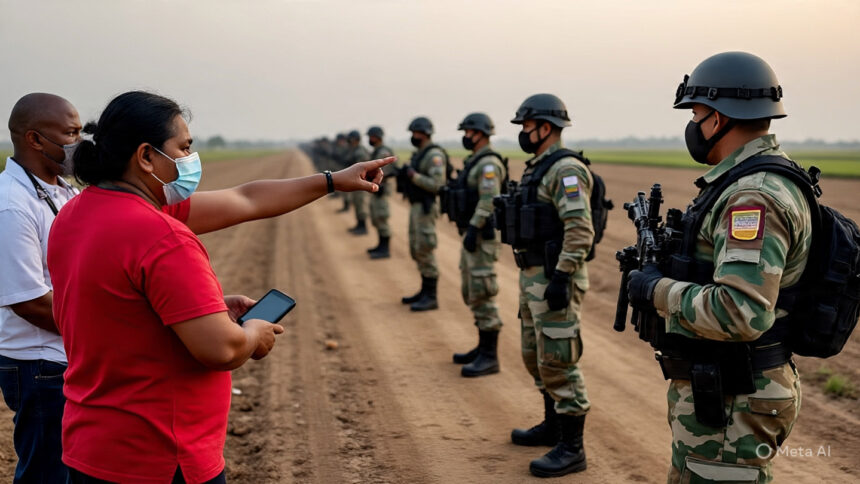Introduction:”Immigrants Raid After Clash”
A large-scale immigration raid at a marijuana farm in Ventura County, California, led to violent clashes, critical injuries among workers, and the detention of approximately 200 individuals, Immigrants Raid After Clash,including 10 minors, according to the United Farm Workers (UFW) union.
The raid, which took place at the Glass House Farms in Camarillo,Immigrants Raid After Clash, quickly turned chaotic. The UFW reported that some workers were critically injured, while others—including U.S. citizens—remained unaccounted for after the raid.
Initially, the union stated that one death had occurred during the operation. Immigrants Raid After Clash,However, it later retracted this, stating the death was not yet confirmed.
Protesters Confront Federal Agents
The raid sparked immediate backlash from activists and community members.
According to eyewitnesses and live video streams, Immigrants Raid After Clash,National Guard troops, equipped with guns and gas masks, formed a line to prevent demonstrators from entering the farm premises. The dramatic scenes unfolded live on social media, with some videos showing a teenage boy crying, saying his mother had been taken during the operation.
Minors Among Those Detained
Of the 200 detained individuals, 10 were juveniles, Immigrants Raid After Clash,including 8 who were unaccompanied minors, according to Customs and Border Protection (CBP) Chief Rodney Scott.
“The youngest was just 14 years old,”Immigrants Raid After Clash, Scott wrote in a post on X (formerly Twitter).
The Department of Homeland Security (DHS) issued a statement confirming that at least 10 migrant children were rescued from what appeared to be a case of forced labor, exploitation,Immigrants Raid After Clash, or even human trafficking.
“This raid was not about marijuana—it was about illegal labor practices and the exploitation of vulnerable children.”

Glass House Responds to Allegations
Glass House, the cannabis company operating the raided farms, issued a public statement maintaining that it has never knowingly violated labor laws, Immigrants Raid After Clash,including child labor regulations.
“Glass House has never employed minors and follows all applicable hiring practices.”
Two separate Glass House farms—one in Camarillo and another in Carpinteria—were raided simultaneously as part of this operation.Immigrants Raid After Clash, Both sites are located along California’s central coast, an area well-known for agriculture and legal marijuana cultivation.
Union Condemns Treatment of Migrant Workers
The United Farm Workers union strongly criticized the raid and its aftermath. In a statement, the UFW said that child labor among farm workers is a longstanding issue, partially due to systemic legal exclusions.
“Farm workers are excluded from basic child labor protections,” the union stated. “Immigrants Raid After Clash, But detaining and deporting children is not a solution.”
The union emphasized the need for reform, calling for protections that prioritize worker safety, not punishment or deportation.
Wider Immigration Crackdown in California
This incident is part of a broader immigration enforcement campaign currently underway in California, especially in Los Angeles County. Marines were deployed last month to assist federal immigration agents in daily raids across Southern California.
While President Trump’s tough stance on immigration has garnered support in many parts of the country, in Southern California, the impact has been devastating for immigrant communities. Many migrants are living in fear, choosing to stay hidden in their homes rather than go to work, school, or even the grocery store.
Local advocacy groups have reported a sharp increase in mental health issues and community disruptions as a result of these raids.

Legal Marijuana, Illegal Labor?
Though marijuana is legal and heavily regulated in California, the recent raid focused not on the product itself but on the status of the workers.Immigrants Raid After Clash, Federal agencies assert that the labor practices at these farms violated immigration and labor laws, especially involving minors and unaccompanied children.
The legal cannabis industry in California has grown rapidly in recent years,Immigrants Raid After Clash, but this incident has brought renewed attention to how some farms rely on undocumented labor, often under exploitative conditions. Immigrants Raid After Clash,Many workers are hesitant to speak out for fear of deportation, even if they are being subjected to unsafe or illegal work conditions.
Potential Human Trafficking Investigation
The presence of unaccompanied minors has raised serious concerns among authorities. Immigrants Raid After Clash,Homeland Security has not ruled out the possibility that some of the children were trafficked or smuggled into the country to work illegally.
“This may go far beyond labor law violations,” said a federal investigator close to the case. Immigrants Raid After Clash,“We could be looking at a potential case of organized human trafficking.”
Investigations are now underway to determine how the children ended up at the facility, who was responsible for hiring them, and whether any trafficking networks were involved.
The Road Ahead
As investigations continue, both sides—federal agencies and immigrant advocates—remain entrenched in their positions. While officials frame the raid as a rescue operation, advocates argue that it was a militarized crackdown that traumatized already vulnerable communities.
Calls are growing louder for more transparent labor practices, legal protections for farm workers,Immigrants Raid After Clash, and immigration reform that includes pathways to regularization instead of punishment.
The United Farm Workers and other advocacy groups have vowed to continue monitoring the situation and to provide legal and humanitarian assistance to the detained individuals.
For now, the fate of the 10 minors and nearly 200 detainees remains uncertain, Immigrants Raid After Clash,as does the future of labor rights and immigration enforcement in California’s booming agricultural and cannabis sectors.

